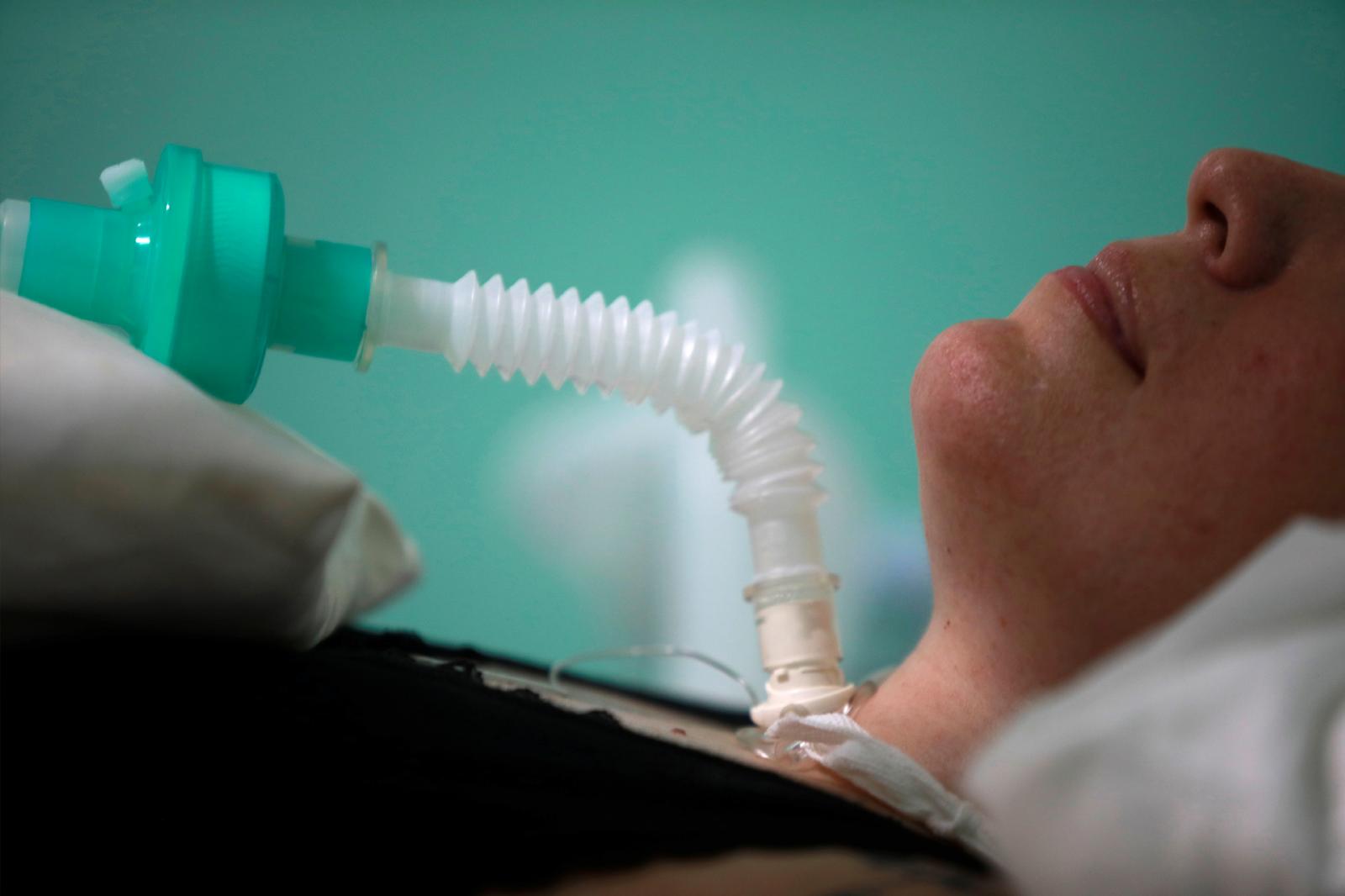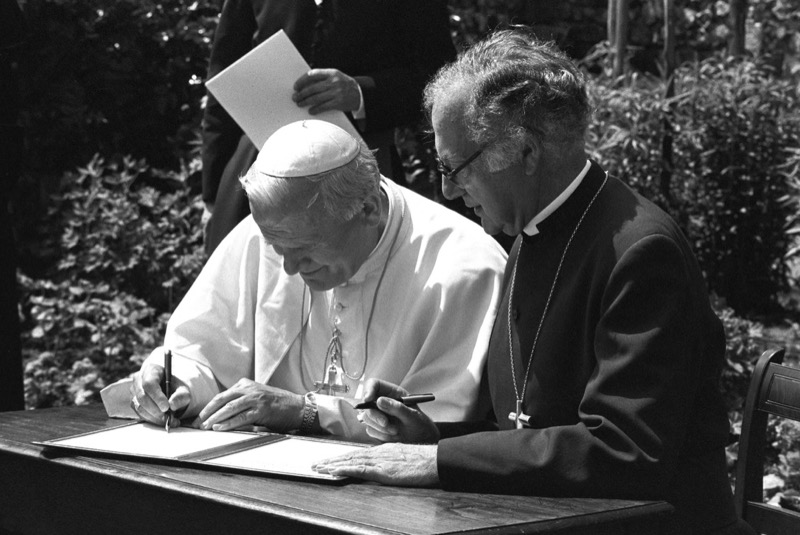The Week of Prayer For Christian Unity (January 18-25) is upon us and has set me thinking. I’ve been in my current parish for more than fifteen years now and in that time I have become friends with members of the other congregations that form “The Churches Together In The Dittons”. But the remarkable thing is that, apart from the comings and goings of clergy and one or two deaths, it’s pretty much the same little group organising the same round of ecumenical activities as when I arrived. Ecumenists are a minority in the Christian minority in our area; a minority that has grown companionably older together without passing the baton on very effectively to the next generation. Perhaps we should not be surprised that a generation of “non-joiners” (as millennials are reputed to be) shows little interest in belonging to worthy committees or that the hard-working younger residents of leafy suburbia have little energy for more meetings at the end of the working day. But this raises the question: does local ecumenism have a future?
My first exposure to the ecumenical movement (and indeed to other Christian churches) came about through a visit to the Taizé community in Burgundy as a sixth-former in 1979. There the old rigid separations of Catholics and Protestants seemed, if not to evaporate, at least to lose their heaviness. A brightly-painted placard at the door of the community’s church urged us: “Be reconciled, all who enter here …” Inside, Holy Communion was distributed not at Mass but at the end of morning prayer – no questions asked. Protestants joined Catholics in singing chants in Latin, French and whatever other languages were spoken by the young people staying at the time.
Our “communion” was rooted less in doctrinal agreement than in shared worship. Doubtless we ran ahead of what was officially “allowed”. Yet somehow Taizé retained papal favour as “that little springtime” (to quote John XXIII) through every subsequent up and down of ecumenical relations. And, by a delicious irony, the first person to whom Cardinal Ratzinger gave holy communion at Pope John Paul II’s funeral was Brother Roger, the founding prior of Taizé.
The Anglican Roman Catholic International Commission was making encouraging noises in the 70s and early 80s, with agreed statements on Eucharist, Ministry and Authority – even if these weren’t acceptable at all points to the Congregation for the Doctrine of the Faith and were equally unpopular in some Anglican circles. The image of Pope John Paul II and Archbishop Runcie kneeling together at the site of Thomas Becket’s martyrdom in 1982 provided a remarkable image of what seemed possible forty years ago. But then came the Anglican Synod’s vote on the ordination of women in 1992. While this is sometimes regarded as beginning an “ecumenical winter” in the last years of John Paul II’s pontificate, his 1995 encyclical, “Ut Unum Sint”, amply demonstrates that the freeze was not that deep. The letter underlines the irrevocable commitment of the Catholic Church to ecumenism and offers a startling invitation to other Christian theologians to help reimagine the papacy as a ministry of unity for all the Churches. Nonetheless, chill winds blew even when a joint agreement on the Doctrine of Justification by Faith was reached with the Lutheran churches in 1999.
Individuals faced difficult choices in those years. A very active parishioner left my first parish so that she could follow her vocation. Conversely, former Anglicans sailed down the Thames and up the Tiber, bringing with them “their Anglican patrimony”, whether or not they joined the Ordinariate. Some proved more Catholic than the Pope. And some brought their wives – leaving me wondering whether Basil Hume and Derek Worlock were aware when they obtained the “indult” permitting the reordination of Former Anglican Clergy of the change this would effect in Catholic attitudes to celibacy. A former colleague on the National Conference of Priests is now vicar just down the road.
But the turmoil didn’t necessarily affect the relations between our local communities. In what we do together as “Churches Together”, issues of Order and Ordination scarcely feature, except insofar as we know not to attempt to “break bread” together. Neither are “Women priests” an issue in any shared prayer-time. They have simply become a normal feature of our society. Indeed, I suspect that if I raised the question with parishioners of what we should do about the tumbling number of clergy in our diocese, “Ordain women!” would probably be one of the more common suggestions, only slightly behind “Ordain married men!” Make of that what you will.
So back to that question of the future of local ecumenism, assuming it’s not to be confined to a little committee of the dedicated organising events that attract only the usual suspects or the gentle friendship and trust uniting leaders of our respective communities. Where I see energy is in practical efforts like supporting the local foodbank – though it would be good to see more people questioning why we accept a society so divided between haves and have-nots. I see it in backing for the local refugee resettlement charity, “ElmbridgeCAN”. I see it in shared attempts to be a point of contact for those struggling through these years of pandemic. Somehow, in little ways or large, our communities have become “field hospitals” for the hurting in our midst.
But here’s a further element – the one which I think may prove decisive. All our local churches are weakened by Covid, by secularisation, by the structural problems besetting our respective communions, by a widespread distrust of institutions. That will lead to one of two consequences: either their collapse or their transformation into precisely what Pope Francis has called us to be: a joyful community of poor disciples, “bruised, hurting and dirty because it has been out on the streets, rather than unhealthy from being confined and from clinging to its own security”. Sometimes it takes brokenness for the Church to be made whole.
Fr Rob Esdaile is parish priest of Our Lady of Lourdes, Thames Ditton, Surrey.



 Loading ...
Loading ...
What do you think?
You can post as a subscriber user ...
User comments (0)